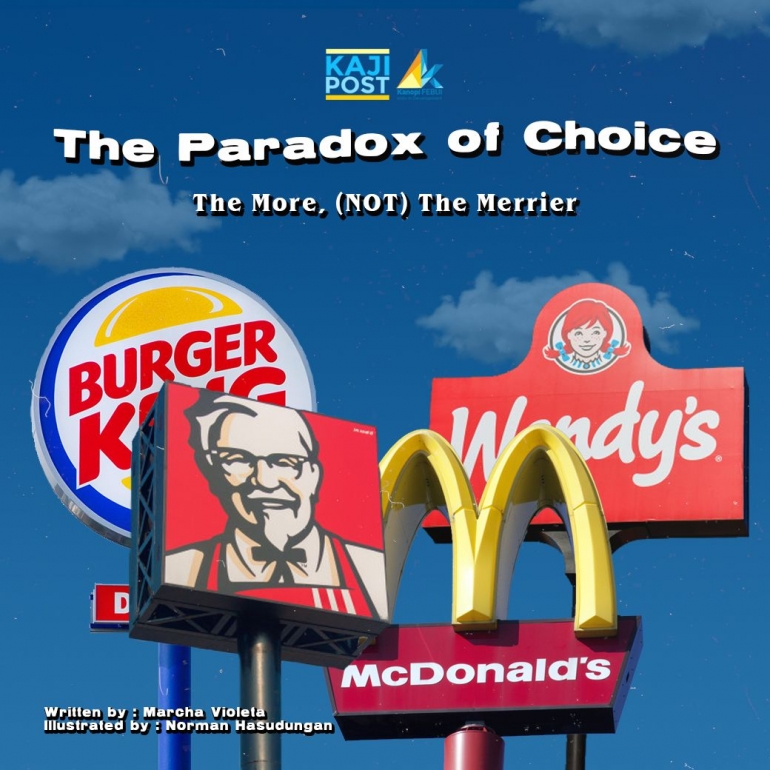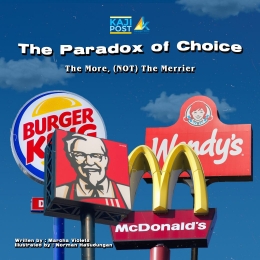Why do we frequently have a hard time choosing what to have for lunch? Why do some people who claim to commit in monogamous relationships actively seek other potential partners? Why do we insist on keeping some doors open even if we bear the bare minimum interest in them?
At first glance, those questions seem to carry little resemblance between each other---except for the fact that they lurk in the back of our minds as we have yet to find the appeasing answers.
However, as we look closer, we will notice that the core problem underlying this kind of questions may be one and the same, the paradox of choice. Here comes behavioural economics to help us answer those burning questions.
The conventional wisdom
Not a day goes by where we are not faced with a smorgasbord of decisions to make. A Cornell University study found that a human is estimated to make a daily average of over 200 decisions on food alone (Wansink and Sobal, 2007); we can only imagine how many other decisions are there to make each day.
With every decision, a myriad of options tags along, waiting to be chosen. The rapid improvements of technology in the last few decades since the 4th Industrial Revolution has given birth to the huge number of options that we can choose from. Technology does so in two ways.
First, it enables firms to diversify production and create new varieties of products. Second, technology also does so not by changing the depth of the pool of choices, but by easing the access to the said pool (e.g. online applications for dating and food delivery). In this day and age, things that were not readily available for us to choose are now only one-tap away on our smartphones.
Early economists used to think of choices the way a party animal would; the more, the merrier. In fact, the introduction of new choices means each unit of money that consumers own now is worth more (Mankiw, 2018).
Consider this example: in 2015, Gojek, an online ride-hailing application operating in Indonesia, launched a new feature called GoFood. The idea of GoFood is to let customers order food from restaurants and have them delivered by drivers who are dubbed as Gojek's partners.
Previously, there were already a small number of restaurants that provided delivery services through applications, but they were not integrated nor versatile. Gojek's GoFood increased customers' set of opportunities from which they can choose and compare their meal options. Through GoFood, Indonesian people could achieve the same level of economic well-being with fewer units of money, thus making them better-off.
Beware of the decision fatigue
As we have been exposed to the economic rationale of having more choices, we might begin to think that the premise is true for all times. However, it is not always the case. The nature of choice is paradoxical; a plethora of choices makes people happier because they can turn some of it down, yet people lack the self-control to refuse them (Thaler, 2018).
A Homo economicus would value an option solely on its expected outcome. Inversely, a normal person, who is prone to irrationality, would value a choice subjectively. That subjective value might be higher than the choice's expected value because of two reasons: the desire for flexibility and the aversion to loss (Shin and Ariely, 2004).







